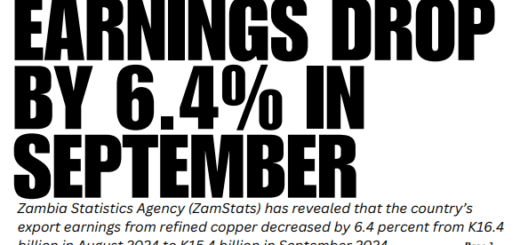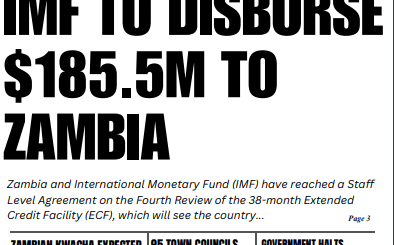What is the UPND Administration’s Communication Strategy?
In the life of a political party, two events stand above all others: winning power and authority, and losing them. What happens in between is dictated by how public perceptions are managed—not merely by what a party claims to be doing, but by how people think it is doing. It is this gap that ultimately determines survival or defeat.
One needs only to glance at Zambia’s political history to see the truth of this. The late President Sata was a master of controlling the narrative, using propaganda to cement his position. His administration’s control over public perceptions rendered opponents almost invisible.
Similarly, President Banda’s fall was largely a result of poor public perception, not necessarily poor performance. The lesson here is clear: those who control the narrative control power and authority.
Yet, the United Party for National Development (UPND) administration under President Hakainde Hichilema seems alarmingly unaware of this. More than three years in power, the UPND’s communication channels remain clogged, reactive, and disorganized.
There is no coherent strategy, no proactive agenda-setting—just a series of reactions to events that they should be anticipating. The party is on life support, with ministers and members of parliament seemingly detached from the very political machinery that put them into power.
The UPND’s failure to understand that politics is about controlling both the message and the narrative has led to an erosion of public confidence. Politics, at its core, is about the distribution of power, authority, and resources, and maintaining these requires public support. But this support is only sustained when public perception remains in your favor.
When people express dissatisfaction with the high cost of living and economic hardship, the UPND’s reflexive response has been to blame the previous administration. While it is true that the Patriotic Front (PF) left behind significant problems, continuing to pass the buck three years later is not a viable strategy.
The UPND must acknowledge the public’s concerns and address them with empathy and substance. Instead of merely criticizing the PF for failing to diversify the energy mix, the UPND should focus on presenting solutions—expanding energy capacity and promoting energy diversification.
This failure to communicate has permeated the entire administration. UPND ministers, perpetually walking in the shadow of President Hichilema, offer half-hearted and unresearched responses, further fueling public outrage. Party functionaries, frustrated by unmet expectations, now feel alienated and abandoned.
The initial patience among the youth and rank-and-file members has worn thin, with only a few voices like Gilbert Liswaniso attempting to manage the growing frustration.
The UPND’s internal communication failures have also spilled over into governance. Ministers are overwhelmed, party officials are disgruntled, and the party itself appears directionless. The once vibrant energy of the UPND’s rise to power has dissipated, replaced by a sense of stagnation and helplessness.
The UPND’s reliance on divisive figures to communicate their message has compounded the problem. The Permanent Secretary of Information and Media, for instance, is antagonistic and emotionally charged, while the so-called communication consultants the party employs continue to belittle the Zambian public.
This approach is a colossal blunder. Instead of bridging the gap between the party and the people, it widens it.
At this moment, both the UPND as a party and its administration have failed to set the national agenda. As a ruling party, they should be controlling the narrative, steering the conversation, and guiding public opinion.
Yet, they are perpetually on the defensive, always firefighting instead of anticipating crises. The opposition’s propaganda machine, particularly the PF’s, has capitalized on this weakness, constantly putting the UPND on the back foot.
Consider the rise of figures like the PF’s communications team, once dismissed as clowns by many. Today, their allegations and innuendos against the UPND are gaining traction. The UPND’s inability to effectively counter such propaganda only strengthens their opponents.
Ultimately, the UPND’s failure to manage public perceptions will cost them. Their lack of a coherent communication strategy is not just a weakness—it’s a ticking time bomb. Even if they continue to make strides in economic development and governance, they will lose power if they don’t win the perception battle. Politics is not just about running a competent administration; it’s about convincing the public that you are running one.
The UPND must realize that the opposition is not just the PF or any other political party—it’s the Zambian people themselves. If the people lose faith, they will turn to anyone, no matter how unlikely a candidate.
The UPND has the best agenda on the political landscape today, but that alone will not secure their future. Without a drastic shift in how they communicate and control the narrative, the UPND risks losing power as quickly as they gained it.








